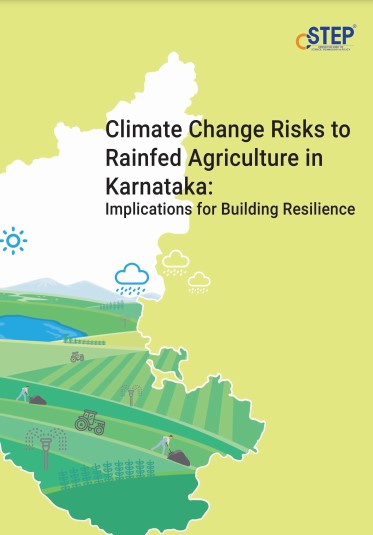Climate change increases strain on agriculture systems through changes in the magnitude, distribution, and timing of rainfall; rise in temperature; and an increase in the frequency of extreme weather events. In Karnataka, agriculture is the key contributing sector for the state’s economy. Despite its importance, agriculture in the state is limited by the availability of irrigation (only 31.2%) and uncertainty in rainfall distribution. These factors greatly hamper the agricultural productivity of the state.
This study assesses climate risks likely to emerge owing to climate change during the short-term period of 2021–2050—termed the 2030s, its implications for yield of maize, sorghum and groundnut—the dominant rainfed crops of Karnataka, and suggests strategies for buffering losses, and building long-term resilience.
Tune into a podcast on our study!

